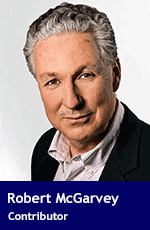 Some years are more important than others. The most important are a culmination, turning points that herald the end of one era and the beginnings of another.
Some years are more important than others. The most important are a culmination, turning points that herald the end of one era and the beginnings of another.
The 410 AD sack of Rome by the Gothic forces of Alaric was the moment when the end of the Roman Empire became inevitable. Other dates in history similarly pointed to new directions: The 1066 Norman invasion of England. The year 1776 brought both Thomas Jefferson’s Declaration of Independence and the publication of Adam Smith’s Wealth of Nations. And 1848 was, arguably, the most disruptive year in European history, as well as when Karl Marx published his Communist Manifesto. The 1989 fall of the Berlin Wall ended the Soviet empire and set us on our present trajectory.
Regrettably, the last year has seen the level of violence in society rise dramatically. The senseless murder of British Labour MP Jo Cox by a man who called himself “Death to traitors, freedom for Britain” has shocked the world. But it is only the latest in a season of unprecedented violence that included last fall’s pitiless carnage at the Bataclan nightclub in Paris, the Orlando massacre, and countless other incidents of slaughter and mass murder.
The general tenor of political debate has hit all-time lows. In the U.K., the antics of the campaign to leave the European Union – with their gross exaggerations and hysterical invasion myths – feed a large and growing population driven more by irrational fear than logic.
Republican presidential candidate Donald Trump is feeding off the same phenomenon in the United States. Building walls with Mexico is not rational; it will not stem the rapid erosion of civil society in the U.S. nor reverse the collapse of mutual respect, which is the real source of public anxiety.
What happens next will determine the fate of western civilization. It is possible that 2016 will be the dawn of a new and better era, but it could also be the beginning of the end of one of the longest periods of global stability in history.
On the positive side, there is tremendous unrealized value in society. The creative economy is full of newer intangible forms of value, assets we don’t recognize, capitalize or distribute ownership of appropriately. The potential for individuals to realize their dreams is greater than ever; with a change of mindset and a few reforms to our institutional infrastructure, we could unleash a new renaissance.
But an increasing number of people are being left behind in this new order and the sources of public anxiety can’t be ignored. Trump may be crude and rude, but his message that the U.S. is on the wrong path by ignoring the ‘little guy’ registers with an increasingly desperate public.
Growing armies of marginalized, disgruntled people are pushing back against an economic and political establishment that puts the interests of artificial individuals (corporations) ahead of real individuals (citizens). The public is increasingly aware that left purely to the market, the inexorable concentration of wealth and power in society will continue and, eventually, civilization will end up in the dustbin of history.
Former U.K. prime minister Gordon Brown recently said: “Unless we strive for a culture of respect … we will be learning nothing from what happened to Jo (Cox).”
So 2016 could either be the beginning of the end or the dawn of a new era.
We all hope for the best, of course, but respecting people is not enough – respect must be accompanied by major systemic changes that open doors of opportunity for the majority.
A society built solely around advancing the interests of large corporations, whose only responsibility is to maximize shareholder returns, will fail. Has failed. The cornerstone of a modern democracy is the owner-citizen, the politically-empowered individual with a hopeful future, whose life is meaningful to themselves, their community and society in general.
This will be a critical year. How important and in what sense is for us all to determine. Let us hope that our decisions are courageous enough to meet the challenge and the direction is positive.
Robert McGarvey is an economic historian and former managing director of Merlin Consulting, a London, U.K.-based consulting firm. Robert’s most recent book is Futuromics: A Guide to Thriving in Capitalism’s Third Wave.
Robert is a Troy Media contributor. Why aren’t you?
The views, opinions and positions expressed by columnists and contributors are the author’s alone. They do not inherently or expressly reflect the views, opinions and/or positions of our publication.


